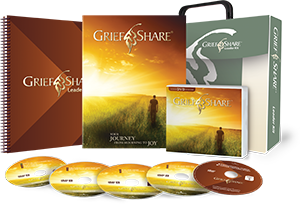
Preventing regret: Alice’s dilemma
Robert and Alice met through an online dating service. He lives in Minnesota, and she lives in Alabama. Alice’s husband divorced her seven years ago, saying they had grown apart and their lives were on two different paths (he was not a Christian). Robert’s wife was killed in a traffic accident two years ago. Both are committed Christians, active in their respective churches. After a year of weekly emails and phone calls, Robert visited her twice, and Alice visited him once. Two and a half years passed with this pattern of communication between them.
Robert has asked Alice to marry him and move to Minnesota. Although Alice joined the online dating service because she was lonely, she is not sure how to respond to Robert’s proposal. She knows she made some mistakes in her previous marriage. She hates the thought of jumping into another marriage that might fail. Robert is eager to hear her answer to his proposal.
Alice shares her dilemma with her Sunday school teacher, Jacob, and his wife. Alice poses her pressing question to them, “How do I prevent making a regrettable decision this time?”
Responding to regret: The value of sensitivity
Regret occurs when we make decisions that produce negative outcomes in our lives. The intensity of the regret will be determined not only by the magnitude of those consequences but also by our sense of responsibility for the decisions. We can assume Alice’s regret is considerable, because she admits to making mistakes that contributed to the divorce, and she now struggles with loneliness. Jacob’s response to her should be sensitive to these hurts. Jacob has already expressed sensitivity to Alice by listening to her story. Alice will benefit from the opportunity to elaborate on or explore further the emotional impact of her loneliness and her relationship with Robert.
It might seem like nothing productive happens during these types of conversations, but that is incorrect. In situations like Alice’s, elaborating on or exploring what she is experiencing emotionally will help her clarify her desires and how they are affecting her thoughts and choices. People can operate on automatic pilot, making choices and acting on assumptions related to desires without adequately evaluating their validity or usefulness. For Christians like Alice, evaluating desires is part of determining whether or not decisions are honoring to the Lord (see Rom. 13:14; Gal. 5:16–24).
God-honoring decision-making, in essence, is what the biblical writers called “wisdom.” “Be very careful, then, how you live—not as unwise but as wise, making the most of every opportunity, because the days are evil. Therefore do not be foolish, but understand what the Lord’s will is” (Eph. 5:15–17, emphasis added). If Alice wants to avoid regrettable decisions in her relationship with Robert, Jacob can coach her in thinking about her dilemma from the Bible’s wisdom perspective.
Reducing regret: The value of wisdom’s perspective
Alice has asked Jacob how she might prevent making a regrettable decision. Regret, however, might come even when we make good decisions, because we live in a fallen world where people do not always respond righteously and situations are not always fully resolvable. So, Jacob might need to remind Alice of this fact; she would do better to think in terms of reducing possible regrets through wise decision-making.
How might Jacob present this wisdom perspective to Alice? Here are some suggestions:
- James 1:5–8 can be a starting point. Even though we often lack wisdom, we have access to it through a relationship with God. Furthermore, James reminds Alice that God delights to share His wisdom with His needy children who seek it. The NIV says God “gives generously to all,” which is a way of communicating James’s point that God responds to requests for wisdom without hesitation or reservation. Interestingly, though, James also tells Alice that she must guard against being “double-minded,” which is the mind-set of someone who is not fully convinced of God’s good intentions or promises—hence the doubting James mentions (vv. 6–8). Alice needs to ask God for wisdom with a single-minded trust in His wisdom that matches His single-minded intention to bless her with it.
- Jacob could encourage Alice with one aspect of the wisdom perspective that she has already used: she has sought counsel. Wise people are humble (Prov. 11:2), and in their humility, they know what they don’t know. “Plans fail for lack of counsel, but with many advisers they succeed” (Prov. 15:22). Alice might need more counsel than Jacob alone can provide, and generally speaking, in her search for wise advisers, she should look for:
- Individuals who know the Bible well and can help her determine the relevant biblical principles to follow
- Individuals who know her well and can help her identify potential blind spots she does not see
- Individuals who have experience with this issue and can offer her suggestions that she might not think of on her own (if possible)
- Alice’s question about how to respond to Robert is one of the myriad of questions for which she cannot use a concordance to find a chapter-and-verse answer. However, Jacob could remind her that God’s Word still provides the sufficient framework for making God-honoring decisions. God has never left His children without the necessary guidelines to please Him (Deut. 29:29; Ps. 119; 2 Pet. 1:3–4).
In these situations, Alice must use biblical principles that will allow her (1) to exclude options that would detract her from pleasing and honoring God (cf. Rom. 14:23; James 4:17) and (2) to narrow her legitimate options as much as possible to see which might be the best for her.
Jacob might even create a checklist of biblical principles for her particular dilemma.
| “But if the unbeliever leaves, let it be so. … God has called us to live in peace” (1 Cor. 7:15). | |||
| It is not good to be alone without the giftedness to do so (cf. Gen. 2:18; 1 Cor. 7:7, 9). | ✓ (It seems likely that Alice is designed for marriage, but the personal problems she had in the previous marriage should be addressed.) | ||
| If she remarries, it must be “in the Lord” (= be a Christian; 1 Cor. 7:39 ESV). | |||
| If she remarries, Robert must understand how a husband should love and honor his wife (Eph. 5:25–30; 1 Pet. 3:7). | ✓ (This is a good sign, but not determinative. In what ways does Robert show love to people now?) | ||
| If she remarries, she should be able to see herself submitting to Robert’s leadership in “everything” (Eph. 5:22–24, 33). | ✓ (Has Robert demonstrated biblically based decision-making in different areas of his life?) | ||
| If she remarries, she should be able to “de-prioritize” other primary relationships for the sake of her marriage (cf. Gen. 2:24). | ✓ (At this stage in her life, “primary relationship” might not be parents, but any relationship that distracts her from a marriage is inappropriate.) |
Seeing a chart like this, Alice might have more confidence in her response to Robert’s proposal. In this case, without more specific information, the larger number of “maybes” suggests she should not say yes at this time.
Conclusion
None of us can completely eliminate all regret in our lives. But, using the Bible’s wisdom perspective, we can be confident that it is possible to honor God with whatever decision has to be made. The wisdom perspective can reduce the regret considerably by keeping our desires in check so that they do not distract us from God’s purpose for us: to glorify Him in everything (1 Cor. 10:31).


